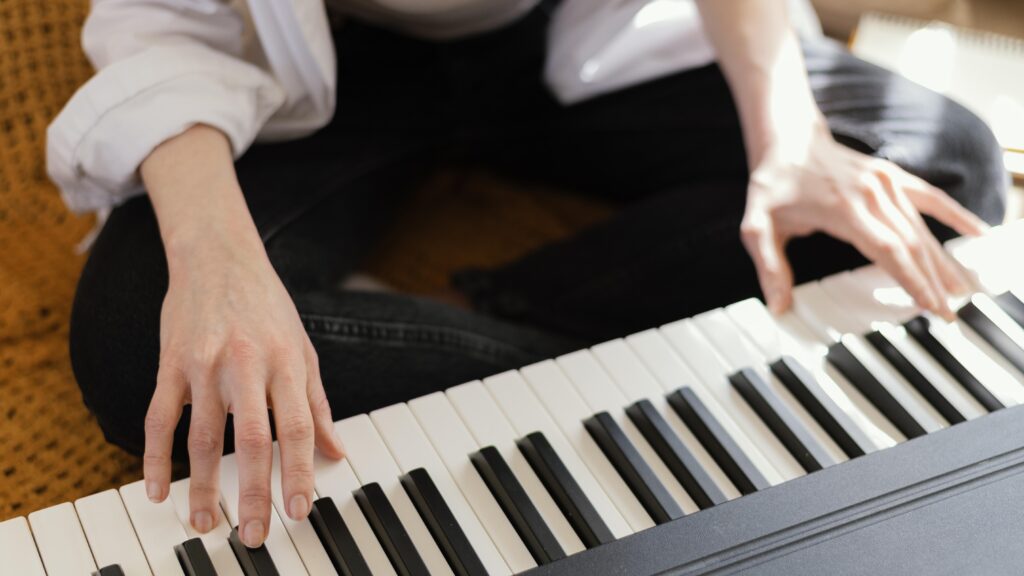As a piano student, selecting the right keyboard is crucial to your musical journey. Whether you’re a beginner or an advanced player, your instrument should embody quality, functionality, and inspire your creativity. In this guide, we’ll explore the essentials of buying a keyboard, including features, brands, and sample models across different price ranges.
Basics
A quality keyboard should possess certain fundamental elements. Firstly, it must produce a sound that resonates well and closely resembles that of an acoustic piano. Secondly, it should boast 88 keys, providing the full range necessary for learning and performing piano repertoire. Additionally, an evenly weighted action, responsive to touch, ensures dynamic control and expression. Pedals, a stable music rest, and a comfortable bench are also indispensable components for a fulfilling playing experience.
Digital Pianos and Keyboards
In addition to the basics, digital pianos and keyboards offer a range of features to enhance your musical journey. Connectivity options such as headphone jacks, USB ports, and Bluetooth capability facilitate versatile usage with headphones, smartphones, or tablets. A variety of sounds, including piano tones and other instrument effects, enrich practice sessions and encourage exploration across different music genres. Recording and playback functions are invaluable tools for effective practice, skill development, and creative experimentation.
More About Features
When selecting a keyboard, consider the following features:
- Keyboard: Opt for a keyboard with 88 full-sized keys, weighted to mimic the feel of an acoustic piano.
- Sound: Choose a keyboard with a high-quality piano sound and additional instrumental effects for versatility.
- Pedals: Aim for a set of three pedals, preferably attached to a stable furniture stand, to facilitate advanced playing techniques.
- Physical Set-Up: Ensure a sturdy keyboard stand, music stand, and bench of the appropriate height for optimal posture and comfort during practice sessions.
- Connectivity: Look for easily accessible power connections, headphone jacks, USB ports, and Bluetooth capability for seamless integration with other devices and music apps.
Sample Models and Pricing
Here are some sample models across different price ranges:
- Donner DEP-20: Beginner digital piano with improved action and sound, priced at $469.99.
- Casio PX-770: Digital piano bundle including stand, bench, and headphones, priced at $849.99.
- Roland RP-102: Comparable to the Yamaha P-125, offering powerful sound and additional features, priced at $999.99.
- Yamaha P-125: A reliable choice for beginners and intermediate players, priced around $949.99.
- Casio PX-S1100: Slim design digital piano with enhanced features, priced at $859.
- Roland RP-107 and F-107: Digital pianos with advanced features, priced at $1,099.99.
- Yamaha P-515: Digital piano offering exceptional quality, priced at $1,999.
When purchasing a keyboard, prioritize essential features such as 88 keys, quality sound, piano-like key action, and stable physical set-up. Explore different brands and models, considering your budget and specific preferences. Check out reviews, demo videos, and visit dealerships to try out keyboards in person whenever possible. Remember, investing in the right keyboard will support your musical growth and bring years of joy and fulfillment to your practice sessions and performances.
Now that you have a clearer idea of what kind of keyboard you need, it’s time to choose your instructor! We invite you to learn more about our piano department here.



